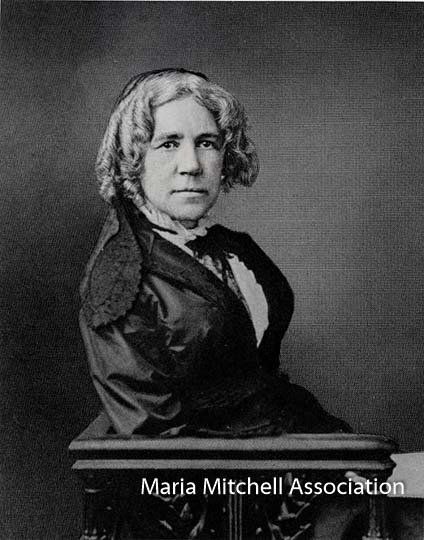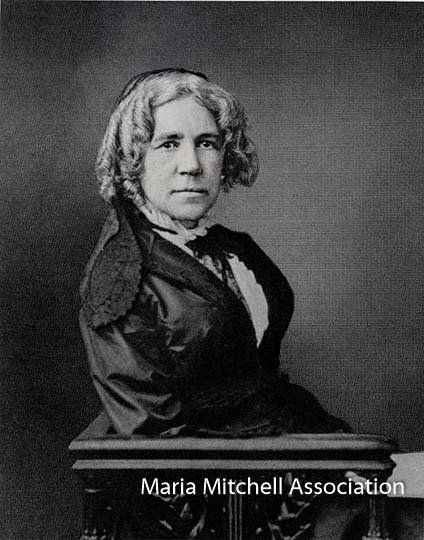Maria Mitchell In Her Own Words
Nov. 23 {1870}
My dear Lizzie {Williams, Vassar Class of 1869},
. . . And you are so all over a radical, that it won’t hurt you to be toned down a little. And in a few years (as the world moves) your family will have moved one way and you the other, a little and you will suddenly find yourselves in the same plane.
It is much the way it has been between Miss Lyman {Vassar’s Lady Principal} and myself. Today she is more of a Women’s Rights woman than I was when I came here, while I begin to think that the girls dress better at tea time . . .
I have learned to think that a young girl better not walk to town alone even in the day time. When I came here I should have allowed a child to do it. But I never knew much of the world, never shall, nor will you . . . we are both a little deficient in worldly caution and worldly policy . . . .
Lizzie is Elizabeth Williams Champney, a Vassar College student of Maria Mitchell’s who would become a close friend. Her artist husband would paint a portrait of Maria later in her life – the couple had named a daughter after Maria Mitchell – and at least one of Lizzie’s books was dedicated to Maria Mitchell. While a student at Vassar, Lizzie wrote a mock-biblical account of the life of Vassar’s founder, Matthew Vassar, that was claimed to be “shocking” and banned from the campus by Principal Lyman.
Lizzie was raised in Ohio by abolitionist parents – more than likely Quaker – thus she and Maria shared a somewhat similar upbringing and also one of some sheltering. This is noted throughout Maria’s letter to Lizzie – the trusting nature of non-worldly people as Quakers were – their trust for one another and “worldly” people (non-Quakers). But also the equality factor – that a young woman should have no qualms of walking freely as Maria and other women did on Nantucket; as Lizzie did in her Quaker community at home.
Quakers were not just the leaders of slaves’ rights, they were also the leaders among women’s rights having been raised in families, religious meetings, and communities where women were treated as equals. But being more radical in one’s views and actions would still bring some consternation among Quakers as no doubt Lizzie’s family was. And Maria, as she noted to Lizzie, was not so radical nor such a woman’s rights woman. Her upbringing had taught her that everyone was equal so it was a shock for Maria when confronted with a different way of treating women as she found off her Nantucket home. This letter to Lizzie seems to serve as a gentle reminder or a gentle guidance to keep that in mind.
JNLF
Recent Posts





